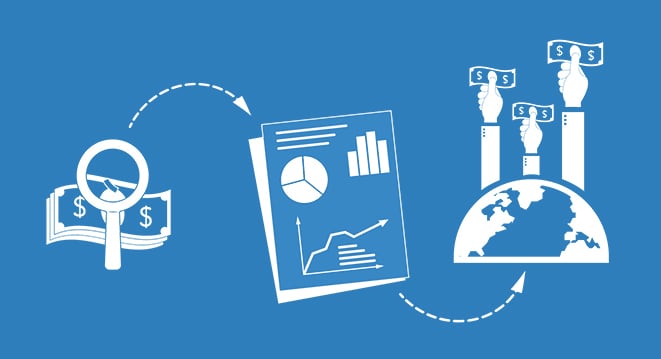They’re lurking somewhere, ready to take a bite out of your bottom line. Learn how to prepare for late fees and what you’ll lose if you don’t.
Shippers are constantly dealing with various time restraints from carriers. One of these is the late fee, which, like other carrier costs, is always on the rise. It’s a different situation between UPS and FedEx, but the end is always the same: Shippers should pay their invoices on time if they want to avoid much more costly repercussions.
How UPS makes customers pay up
UPS has six different customer payment plans in place. The late penalties for each are calculated as follows:
- Monthly Prepayment Plan – The prepayment of 4 weeks’ anticipated charges, with payment due within 7 days of receiving the UPS invoice. A fee of 6% of the total past-due invoice balance is imposed for late payment.
- Weekly Prepayment Plan – Also the prepayment of 4 weeks’ anticipated charges with payment due within 7 days of invoice receipt and the same 6% fee. UPS reminds customers that it takes any outstanding late fees into consideration to calculate both the monthly and weekly prepayment late fees.
- Special Payment Plan – Shipper may prepay anticipated charges for a period of between 10 to 26 weeks. Late payment fees are not added to this plan provided the shipper’s prepayment account has a positive balance at any time during the 27-day period immediately preceding receipt of their current invoice. Should late fees be required, they will be calculated based on the “charges this period” on the invoice. This includes, without limitation, any previously assessed but unpaid late payment fees that are past due.
- Credit Extension Plan, Weekly Payment Plan and Credit Card Payment Plan – All incur a 6% late fee if unpaid after 7 days of UPS invoice receipt.
UPS imposes a further collection cost on all plan types without revealing how much that collection fee will be. They also state that, upon notice to the shipper, the required prepayment amount may be changed by UPS at any time to reflect a revised estimate of four weeks’ charges. Technically this isn’t a fee, but it’s yet another potential expense.
Late fees with FedEx
FedEx has no set late fee (although there is a 15-day due date for transportation charges invoiced), but don’t let that fool you. FedEx seems incredibly generous by comparison, giving customers in some cases months of non-payment before pursuing outstanding invoices.
When FedEx eventually acts, they hold the shipper liable for all reasonably incurred costs that result from pursuing outstanding payments. The ultimate sum of these fees is only hinted — a huge red flag warning for shippers to make payments on time. There’s no telling how high these follow-up fees will go.
FedEx says their costs in chasing late payments may include, but are not limited to, collection agency fees, attorney’s fees and court costs — all of which the shipper will be required to pay. FedEx will also hold shippers liable for any interest accrued on the outstanding amount.
If a shipper is currently receiving credit privileges from FedEx, that privilege will be frozen and not reactivated until all past due balances and associated costs have been fully paid. They caution customers that, even if all overdue and pursuit costs are paid, credit may still be permanently denied to that shipper in the future.
Late payment also means that FedEx may hold, refuse or stop in transit any deliveries currently scheduled for your business until all outstanding payments are received. This means service delays, disappointed customers and almost-guaranteed damage to your reputation as a shipper. All three of those are costly, making FedEx’s lack of clearly defined late fees suddenly a much more expensive reality.
Lastly, always double-check that your credit/payment method is up to date and capable of meeting your current or outstanding fees. FedEx imposes a special handling fee (again unspecified) for any check or electronic funds transfer (EFT) that fails due to insufficient funds on deposit or incorrect or insufficient signature of the drawer.
How 71lbs can help lessen late fees
The first thing we recommend is contacting your carrier, in advance if possible, if you feel you may not be able to make an upcoming payment. Carriers tend to work with customers who are proactive and show a genuine willingness to meet their dues. Your customer representative should appreciate your efforts to make payments, if not on time, at least as soon as possible.
Contract time is another crucial junction with late fees. Our team can be there to help you negotiate your next carrier agreement. There just might be room to lessen those late fee percentages, especially with the current coronavirus pandemic making it difficult for payments to be made on time, both now and for the foreseeable future.
Contact us and see what else we can do to keep your fees as low as possible.
At 71lbs, we focus on two things: a) helping customers save money on shipping, and b) helping customers understand their shipping costs. We provide refunds and savings on shipping insurance, freight and imports, among other benefits. Our automated dashboard displays easy-to-understand shipping costs and insights so you can make better business decisions. Drop by the contact page to get in touch!



